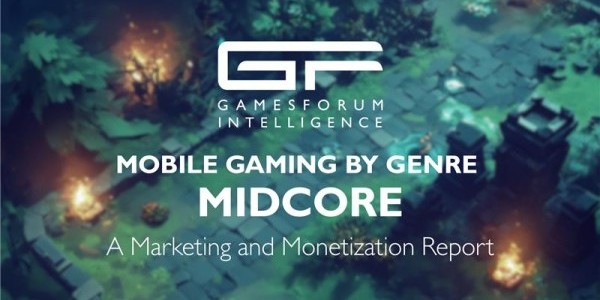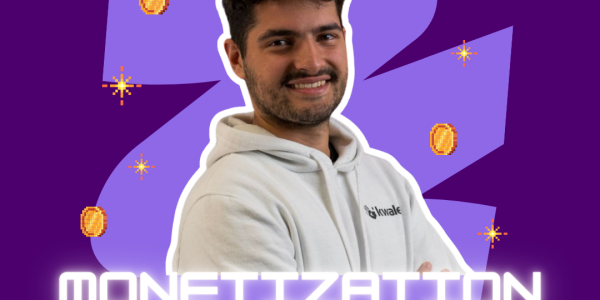Sweet Crossing’s sour in game economy

By Andi Nuruljihad
The basic premise of Sweet Crossing should be familiar to anyone who’s played any variation of Snake on their phones.
Players take control of cute little animals (called Companions in Sweet Crossing) as they gobble up various sweets scattered throughout a map. As you eat, your Companion’s tail grows. Other players on the map are doing the same, and if you crash into one of their tails, you die and lose all of the points you’ve collected during play. It’s simple, intuitive, and addictive; designed to be played for as long (or as short) as you want.
The higher your score, the more powerful you become. At some point, your tail becomes long enough to completely muscle out lower-scoring players from the map by wrapping your body around their Companion, effectively caging them and preventing movement. This is only possible because, in Sweet Crossing, you can’t die by crashing into your own tail.
As imbalanced as it is, Sweet Crossing is undeniably fun. It also does its best to keep you playing because it rarely punishes the player. Even when you make mistakes, crash into another player, and lose out on all of your points, you can always get back into the action by watching a Rewarded Video Ad. Watching an ad or paying Coins (the free in-game currency) allow you to restart where you died with a slight, but measurable, points deduction.
Faking the Multiplayer Experience

Don't let the usernames and leaderboard fool you -- Sweet Crossing is not an online game.
Fake online multiplayer is a growing trend that allows developers to capitalize on the popularity of multiplayer genres without the considerable financial burden of renting and maintaining a live server. This practice is common among smaller indie devs, but even big companies use simulated multiplayer to cut costs -- Mario Kart Tour pulls usernames and stats from real players' profiles and assigns them to the AI racers in your matches.
For an hour, the simulated multiplayer in Sweet Crossing had me convinced that I was playing against real people. I only learned the truth when my internet dropped and the game kept on uninterrupted. The illusion had been broken.
Sweet Crossing is careful not to promote itself as a multiplayer game -- its Play Store page even says the game is playable without an internet connection -- but there's something a bit icky about the practice. Agar.io and Slither.io, the clear inspirations for Sweet Crossing, are both multiplayer games. Multiplayer is a key part of the experience in both those titles, so for Sweet Crossing to borrow their primary mechanic but omit such an important element without a disclaimer feels almost deceptive.
Monetisation Model

Sweet Crossing's monetisation model is built around rewarded video ads. After a death, the game gives you the option to revive after watching a Rewarded Video Ad. New Companions are unlocked by opening Card Packs, though some Card Packs will only gift you the full reward after you view a 30-second advertisement.
The frequent ad prompts are nicely balanced by decent rewards and a real sense of progression. Regular play rewards you with a steady stream of Card Packs so the player is always working toward a new unlock or upgrade. The ads also never get in the way of the game -- none of the Rewarded Video Ad prompts interrupt gameplay, and they’re only offered in the main menu or after death.
Premium Window Dressing
Moonton clearly has plans for implementing in-app purchases at some point -- there's an in-game shop that accepts a premium currency -- but you can't actually buy anything as of the time of writing.
The in-game shop takes two different currencies: Coins and Diamonds. Coins are the "free" currency earned through regular play and are used for upgrading your Companions. Diamonds are the "premium" currency used to purchase Coins and Card Packs. There are multiple ways for you to spend Diamonds -- you can trade Diamonds for various Coin bundles and purchase Card Packs for upgrading your Companions. The problem is, I have no idea where you get them.
I've scoured Sweet Crossing for hours looking for a way to buy, earn, or win Diamonds, and there doesn't seem to be one. If this were a newer release, I'd chalk it up to the title still being in its early stages, but Sweet Crossing has been out for several months now. Moonton isn’t new to the mobile games industry, either -- Mobile Legends raked in over $200 million in 2019 alone -- so the fact that Sweet Crossing has an in-game shop that features bundles that can’t even be purchased is baffling.
Final Thoughts

Sweet Crossing is polished, looks amazing, and runs well on even older devices (e.g. my 2017 Nexus 7 tablet). It also feels like an unfinished product, which is hardly unique in the wider world of free-to-play mobile titles but odd for a title published by a major developer in Asia. The in-game shop still has me scratching my head -- Moonton is a veteran in the mobile games industry, with two successful titles under their belt, each featuring a robust in-game shop, so why is the one in Sweet Crossing incomplete?
Sweet Crossing is developed by Moonton, the Chinese company best known for its highly successful MOBA, Mobile Legends.










